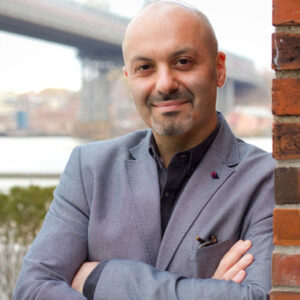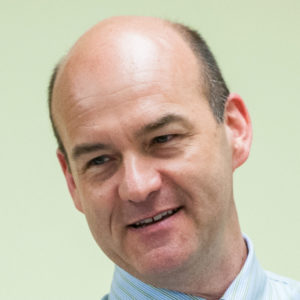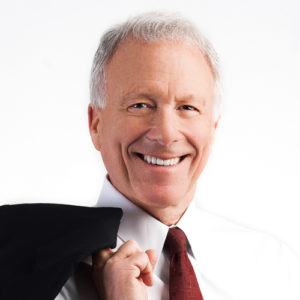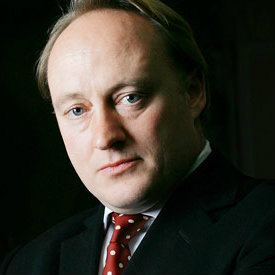Politics & Policy Writing as Literature
Study classics in political writing & learn how to do what the authors do.
July 15–19, 2024
Washington, DC
The penultimate week of the Political Studies Program examines statesmanship. Statesmanship is distinct from ordinary political leadership. It suggests a certain quality of excellence in leadership, character, and judgment.
The first section will examine the thought and political strategy of two of America’s most consequential presidents – Franklin Delano Roosevelt and Ronald Reagan – with a particular emphasis on how national leaders assemble electoral coalitions and then use those after the election to change the country’s trajectory. The second section will consider a range of classic and contemporary authors – from Aristotle to Churchill, Edmund Burke to Václav Havel – to explore the phenomenon of statesmanship as it relates to other political phenomena including virtue, founding, revolution, war, and dissent. Both sections will conclude by considering the statesman’s role in a democracy and whether political greatness is still possible today.
Image: Winston Churchill at the Europa Conference in The Hague, 1948
Flagg Taylor on Havel & dissent
This course is part of our residential Political Studies Program. Fellows participate in morning seminars and meet prominent men and women in public life over afternoon and evening sessions. Up to 32 fellows will be selected.
Henry Olsen, a senior fellow at the Ethics and Public Policy Center, studies and provides commentary on American politics. Mr. Olsen is an opinion columnist for The Washington Post, where he writes daily pieces focusing on politics, populism, foreign affairs and American conservative thought.
Henry Olsen, a senior fellow at the Ethics and Public Policy Center, studies and provides commentary on American politics. Mr. Olsen is an opinion columnist for The Washington Post, where he writes daily pieces focusing on politics, populism, foreign affairs and American conservative thought. He is also the author of The Working Class Republican: Ronald Reagan and the Return of Blue-Collar Conservatism and The Four Faces of the Republican Party, co-authored with Dante Scala.
His predictions of the 2008, 2010, 2012, 2014, 2016, and 2018 elections were particularly praised for their remarkable accuracy. In the 2016 campaign, he accurately identified the factors fueling the rise of Donald Trump early in the race, and his election-eve predictions were among the most accurate of any major analyst or commentator.
Mr. Olsen started his career as a political consultant at the California firm of Hoffenblum-Mollrich. He then worked with the California State Assembly Republican Caucus before attending law school. He served as a law clerk to the Honorable Danny J. Boggs on the U.S. Court of Appeals for the Sixth Circuit and as an associate at Dechert, Price & Rhoads. He has a B.A. from Claremont McKenna College and a J.D. from the University of Chicago Law School, where he served as Comment Editor for the University of Chicago Law Review.

Flagg Taylor is the Executive Director of the Center for Civics, Culture, & Society, at Miami University. His research specialty is in the history of political thought and American government, especially the question of executive power. He is Chair of the Academic Council of the Victims of Communism Memorial Foundation.

Flagg Taylor is the Executive Director of the Center for Civics, Culture, & Society, at Miami University. His research specialty is in the history of political thought and American government, especially the question of executive power. He is Chair of the Academic Council of the Victims of Communism Memorial Foundation.
He is the co-author of The Contested Removal Power, 1789-2010, author of numerous articles, and editor of The Great Lie: Classic and Recent Appraisals of Ideology and Totalitarianism and The Long Night of the Watchman: Essays by Václav Benda, 1977–1989. He holds a Ph.D. and an M.A. in political science from Fordham University and a B.A. from Kenyon College.
Readings:
Discussion Questions:
Readings:
FDR
Reagan
Discussion Questions:
Readings:
Discussion Questions:
Readings:
Discussion Questions:
Readings:
Discussion Questions:
Readings:
Discussion Questions:
Readings:
Discussion Questions:
Readings:
Discussion Questions:
Readings:
Discussion Questions:
Readings:
Discussion Questions:

Boris Fishman
Boris Fishman is the author of the novels A Replacement Life and Don’t Let My Baby Do Rodeo, both New York Times Notable Books of the Year, and Savage Feast, a family memoir told through recipes.

Vickie Sullivan
Vickie Sullivan is the Cornelia M. Jackson Professor of Political Science and teaches and studies political thought and philosophy. She also maintains teaching and research interests in politics and literature. She has published extensively on Montesquieu and Machiavelli and is the co-editor of Shakespeare’s Political Pageant.

Jenna Silber Storey
Jenna Silber Storey is a senior fellow in the Social, Cultural, and Constitutional Studies department at the American Enterprise Institute (AEI), and co-director of AEI’s Center for the Future of the American University. She is concurrently an SNF Agora Fellow at Johns Hopkins University, and a research fellow at the Civitas Institute at the University of Texas at Austin. She also serves on the executive committee of the Alliance for Civics in the Academy.

Robert C. Bartlett
Robert C. Bartlett is the Behrakis Professor of Hellenic Political Studies at Boston College. His principal area of research is classical political philosophy, with particular attention to the thinkers of ancient Hellas, including Thucydides, Plato, and Aristotle. He is the co-translator of a new edition of Aristotle’s Nicomachean Ethics.

Diana Schaub
Diana Schaub is a nonresident senior fellow at the American Enterprise Institute (AEI), where her work is focused on American political thought and history, particularly Abraham Lincoln, Frederick Douglass, African American political thought, Montesquieu, and the relevance of core American ideals to contemporary challenges and debates. Concurrently, she is Professor Emerita of Political Science at Loyola University Maryland, where she taught for almost three decades.

Lewis Libby
Lewis “Scooter” Libby is a distinguished fellow at the Foundation for Defense of Democracies. He has held several high level positions in the federal government related to his current work on national security and homeland security affairs. This included roughly a dozen years working in the White House, the U.S. Department of Defense, and the U.S. Department of State.
Paul Wolfowitz
Paul Wolfowitz is a scholar at the American Enterprise Institute. He spent more than three decades in public service and higher education. Most recently, he served as president of the World Bank and deputy secretary of defense.

Vance Serchuk
Vance Serchuk is Executive Director of the KKR Global Institute and an Adjunct Senior Fellow at the Center for a New American Security. Prior to joining KKR, Mr. Serchuk served for six years as the senior national security advisor to Senator Joseph Lieberman (I-Connecticut).

Andrew Roberts
Andrew Roberts is presently a Visiting Professor at the War Studies Department at King’s College, London and the Lehrman Institute Lecturer at the New-York Historical Society. He is the author or editor of numerous books, including Masters and Commanders, which won the Emery Reves Award of the International Churchill Society and was shortlisted for The Duke of Westminster’s Gold Medal for Military History and The British Army Military Book Award. He is presently writing a biography of Sir Winston Churchill.